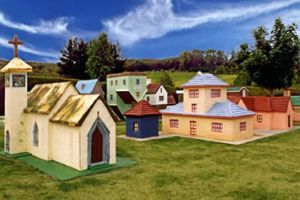Good news amid this week’s appalling news of death and barbarity: the Malaysian Government has released 35,000 Bibles which use the traditional word for God, ‘Allah’.
The Prime Minister’s office said the government chose to release the Bibles because it was “committed to resolve amicably any inter-faith issues”.
It also said this decision would not jeopardise any future resolution of the larger legal conflict.
Analysts have noted that elections are likely soon in the state of Sarawak, where many Christians live, and the governing National Front parties need to shore up electoral support there.
Christian leaders say the word Allah has been used in their Bibles since before Malaysia was formed as a federal state in 1963.
Rising Malay and Muslim consciousness, sparked by Malay nationalist groups seeking political power, has brought the issue to the fore in recent years.
See, Malaysia to release 35,000 Bibles amid ‘Allah’ row.
Earlier, 10 March, Statement from Anglican Bishop of West Malaysia, the Rt. Rev. Ng Moon Hing, speaking as president of the Christian Federation of Malaysia, said the government’s refusal to release the Bibles, seized in 2009, threatened religious liberties. Report, here. A young female parliamentarian leader, Malaysia ‘not an Islamic state‘.
Previous posts, Malaysia: To speak of ‘Allah’? and Malaysia: ‘Allah’ surely weeps.

 What a fantastic Labour Day!
What a fantastic Labour Day! LITTLE Joey Ponsonby-Glover got a chocolate Easter bunny with a difference yesterday through the kindness of a Kingston breeder.
LITTLE Joey Ponsonby-Glover got a chocolate Easter bunny with a difference yesterday through the kindness of a Kingston breeder.